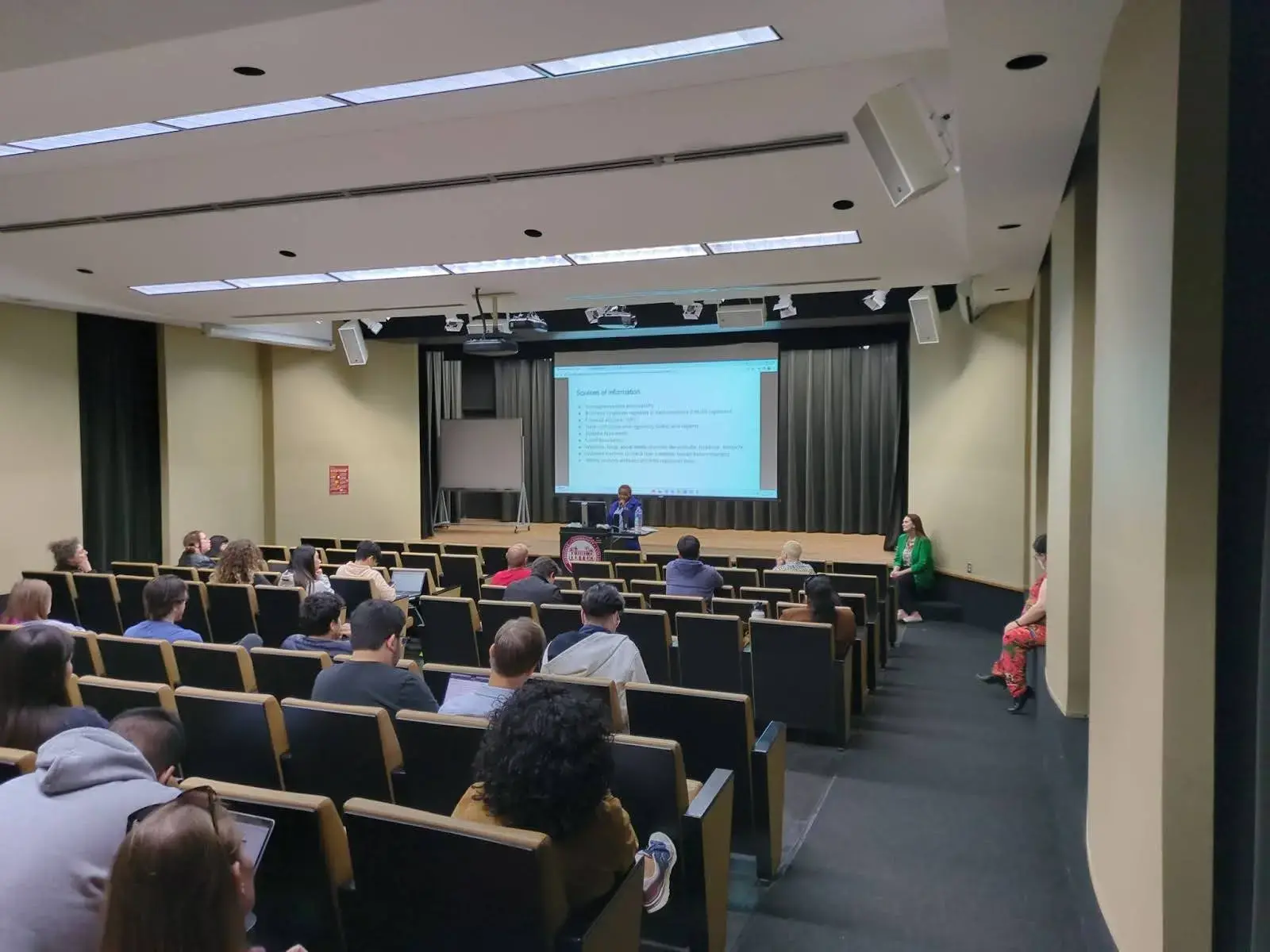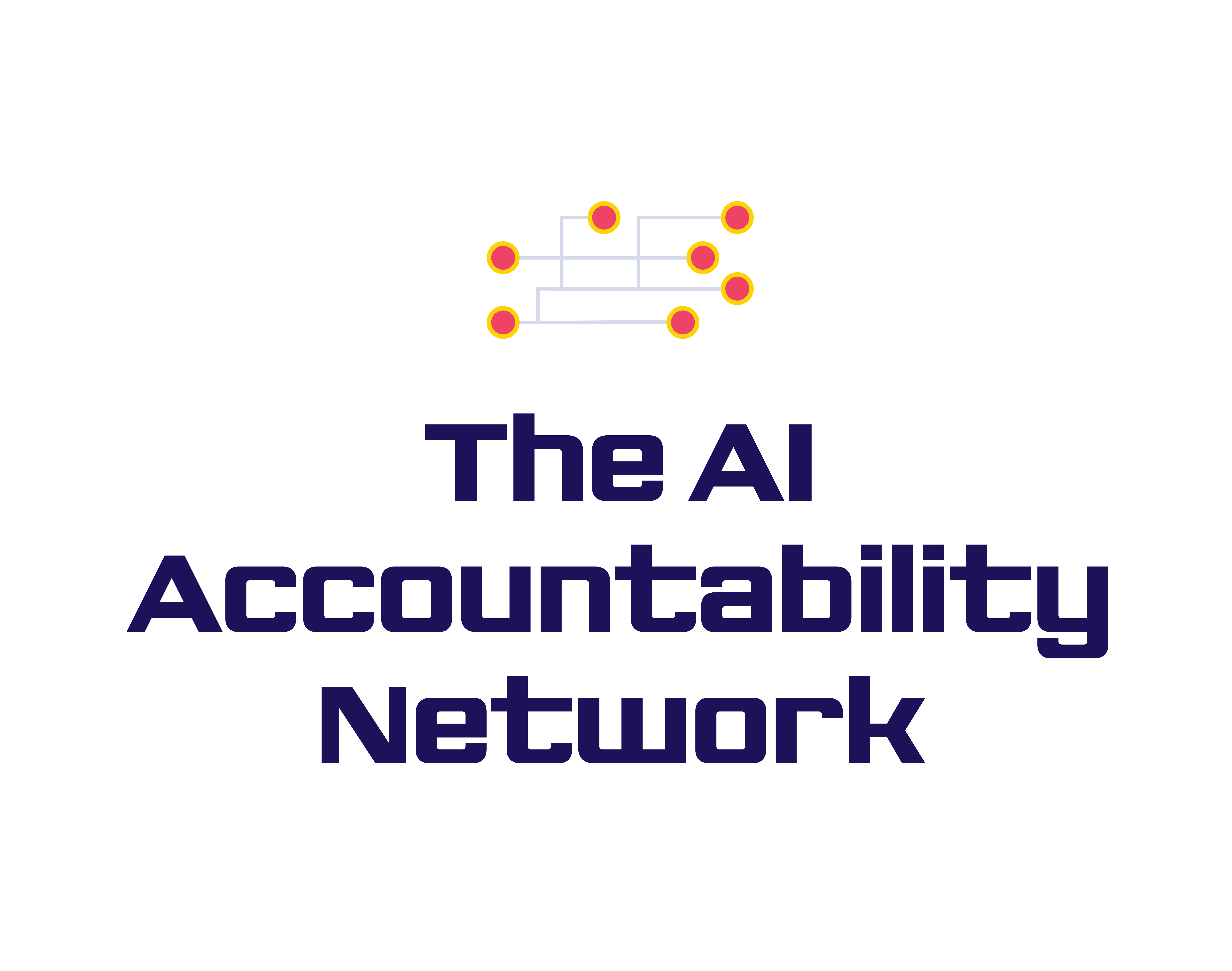
Connecting with 249 students, Pulitzer Center grantee Naipanoi Lepapa visited Pulitzer Center Campus Consortium partners Davidson College, Glendale Community College, and Huston-Tillotson University; K-12 campuses Fairfax High School in Los Angeles and the Girls’ School in Austin; and the University of Texas at Austin.
Stella Mackler, a fourth-year student at Davidson College and co-editor-in-chief of The Davidsonian, wrote about Lepapa’s visit to the campus. Lepapa traveled during March 2024.
One student at Glendale Community College said, “I enjoyed learning about a global issue that I otherwise would not have had an opportunity to know about.” Another said, “Lepapa is an incredible journalist and I’m grateful for her presence so far from home!”
Lepapa, an investigative journalist from Nairobi, Kenya, spent two weeks in the United States presenting her project, the Baby Broker Project, published by Finance Uncovered and supported by the Pulitzer Center. She is also a 2024 AI Accountability Fellow.
Lepapa’s work on commercial surrogacy in Kenya for The Elephant in 2019 served as the springboard for the Baby Broker Project. In collaboration with a global team reporting from Georgia, Estonia, the United Kingdom, and Mexico, Lepapa untangled a web of wealth, shell companies, and political interests veiling New Life Global Network. New Life Global Network franchises commercial fertility, surrogacy, and egg donation clinics in Europe, South America, and Asia. On its website, the company claims to have served over 7,000 families and single parents.
Her reporting surveys the ethical, economic, and health implications of surrogacy. Some countries choose not to regulate the commercial surrogacy industry at all, while others, without policy or administrative infrastructure, criminalize the practice wholesale as trafficking. Evidence has shown that both extremes can harm surrogate mothers, according to Finance Uncovered.
New Life’s promotional efforts were aimed at would-be parents in affluent countries where commercial surrogacy was banned or prohibitively expensive. The company quoted parents at about $40,000, nearly one-third the average price of surrogacy in the United States, according to the report.
In turn, surrogates are offered much smaller—but still life-changing—sums. “Such disproportionate financial incentives potentially undermine consent,” wrote Lepapa and her collaborators. Recruiters often target single women without support systems, according to The Elephant.
While there were “several instances of surrogates being satisfied,” Lepapa and her team identified “serious areas for concern.” Indeed, some surrogate mothers believed that their contracts, some merely verbal, were “the law.” Sometimes without explicit consent, New Life clients flew surrogate mothers to foreign countries and subjected them to procedures ranging from risky—like transferring multiple embryos to increase the chances of twins or triplets—to illegal—like third trimester, back-alley abortions. Before Russia’s invasion, New Life’s Ukrainian branch even told potential clients that “in the event of their surrogate giving birth to a baby with Down syndrome, or another genetic condition, the newborn could lawfully be abandoned at a local orphanage.”
At Glendale Community College, Lepapa explained to a social psychology class: “I think surrogacy can be a beautiful technology when there are laws and protections for parents and surrogates.” These additional protections might look like legal consultation, transparent contracts, equitable compensation, and mental and physical health treatments following difficult labor.
When asked by a Fairfax High School student why she chose to report on surrogacy, Lepapa answered: “If I don’t do it, who is going to do it?”








